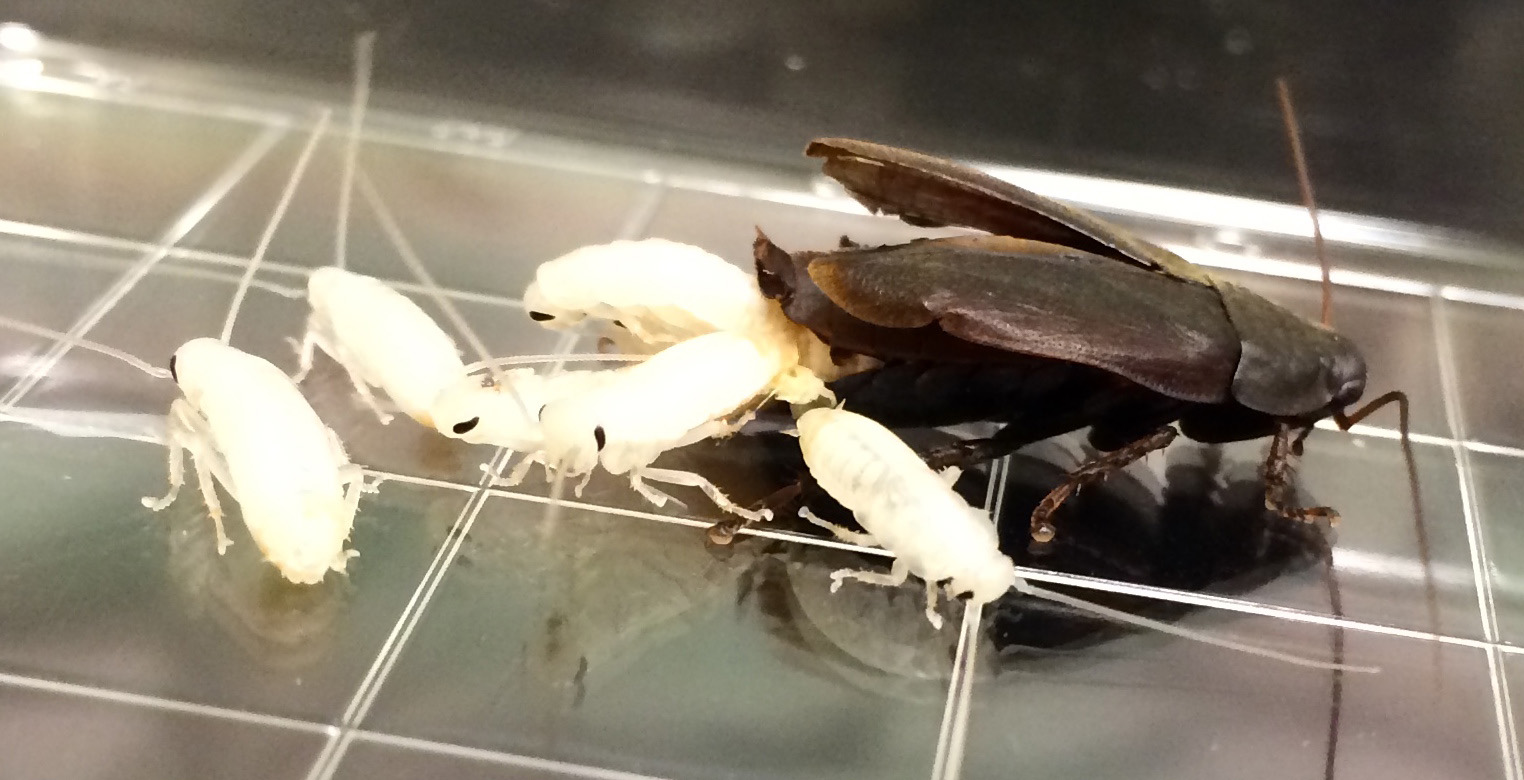This ScienceDirect article discusses the genome sequencing of D. Punctata, also known as the Pacific Beetle Cockroach. The study which the article discusses focused on several different orders of insects- including Blattodea (Cockroaches), Diptera (Flies), and Hemiptera (True Bugs), and how viviparity evolved independently in each of these orders. In each instance of viviparity, insects have their own specially evolved structures to support this function- such as placenta-like structures, brood sacks which act akin to a uterus... And even the ability to generate something like "milk", in the instance of the Pacific Beetle Cockroach. These special adaptations to the urogenital system of insects are incredibly important, as otherwise the brood would not be able to receive proper care nor nutrients while within the mother. The development of these special structures rely heavily upon the rate of chitin metabolism- which is a polysaccharide insect exoskeletons are primarily made up of. The article also discusses how the bodies of viviparious insects have certain aspects of their immune system suppressed, so as to decrease the chances of their fetus being rejected. The results of their study suggest that developmental processes strengthen genes when under increasing selection pressure and positive selection. Their study shows that in general, despite evolving independently several times, the genomic and transcriptional alterations are similar across all instances, be it within mammals, insects, or otherwise.
Personally, I find this topic incredibly fascinating. Usually people think of mammals when on the topic of live births, but the fact of the matter is that many other different creatures have the ability to do so. I think that it is interesting that small arthropods such as insects have evolved to be able to give live births, and even further, the adaptations that their bodies have, ie brood sacks and milk production, are even more incredible. Additionally, I find it almost endearing that creatures which may be seen as gross, such as cockroaches, can actually be considered good parents in the animal kingdom.

